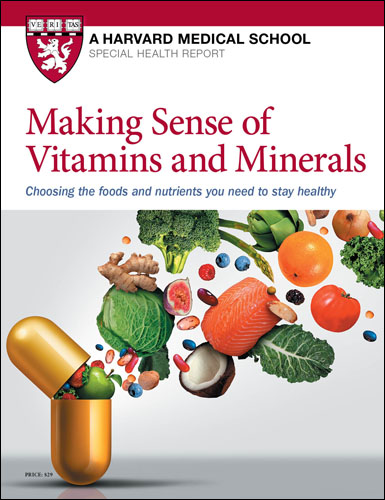Do multivitamins make you healthier?

If you take a multivitamin, it's probably because you want to do everything you can to protect your health. But there is still limited evidence that a daily cocktail of essential vitamins and minerals actually delivers what you expect. Most studies find no benefit from multivitamins in protecting the brain or heart. But There are potential benefits and no risks from a one daily standard multivitamin.
So, is it worth considering a multivitamin as part of a healthy lifestyle? Start with asking yourself why you would consider taking a multivitamin. If you suspect your diet is nutritionally lax, focus your efforts there.
What we know about multivitamins so far
Despite all the research on vitamins and health, we have only a handful of rigorous scientific studies on the benefits of a "true" multivitamin: a pill that provides essential vitamins and minerals at the relatively low levels that the body normally requires.
The Physicians' Health Study II is the best study completed so far. It was the first and only large-scale randomized clinical trial to test a commonly taken multivitamin like the ones most people take, containing the daily requirements of 31 vitamins and minerals essential for good health.
A large group of male physicians took either a multivitamin or a placebo pill for more than a decade. The results have been mixed, with modest reductions in cancer and cataracts, but no protective effect against cardiovascular disease or declining mental function. Is it safe?
Multivitamin advocates point to the lack of any strong proof that taking a multivitamin for many years is dangerous. While the likelihood of harm is small, the likelihood of a clear health benefit is also very small—and also we have no clear proof yet of such benefit.
The optimists say despite no clear evidence of health benefit, multivitamin supplementation is low risk and low cost. And it helps to fill potential gaps in the diet that people might have.
For now, you can take certain steps:
- Ask your doctor if you really need to take a multivitamin. Could you have a vitamin deficiency?
- Assess your diet. Do you eat as healthy as you could? Is anything lacking?
- Do you want expert nutritional advice? See a dietician. Also, Medicare beneficiaries get an annual "wellness" visit with their primary care providers.
- Do not take high doses of specific vitamins, especially A and E. These may actually be harmful.
|
What does the evidence suggest?Physicians' Health Study IIResearchers looked at the effect of long-term multivitamin use in healthy men on various aspects of health. Here is what they found:
Image: Yakobchuk/Getty Images |
Top Image: Moya Studio/Getty Images
Disclaimer:
As a service to our readers, Harvard Health Publishing provides access to our library of archived content. Please note the date of last review or update on all articles.
No content on this site, regardless of date, should ever be used as a substitute for direct medical advice from your doctor or other qualified clinician.

















